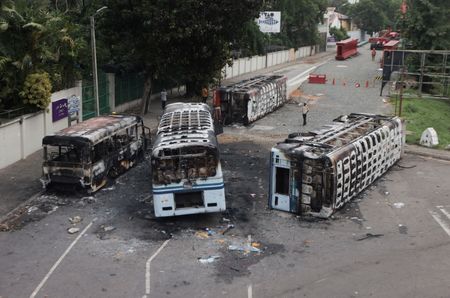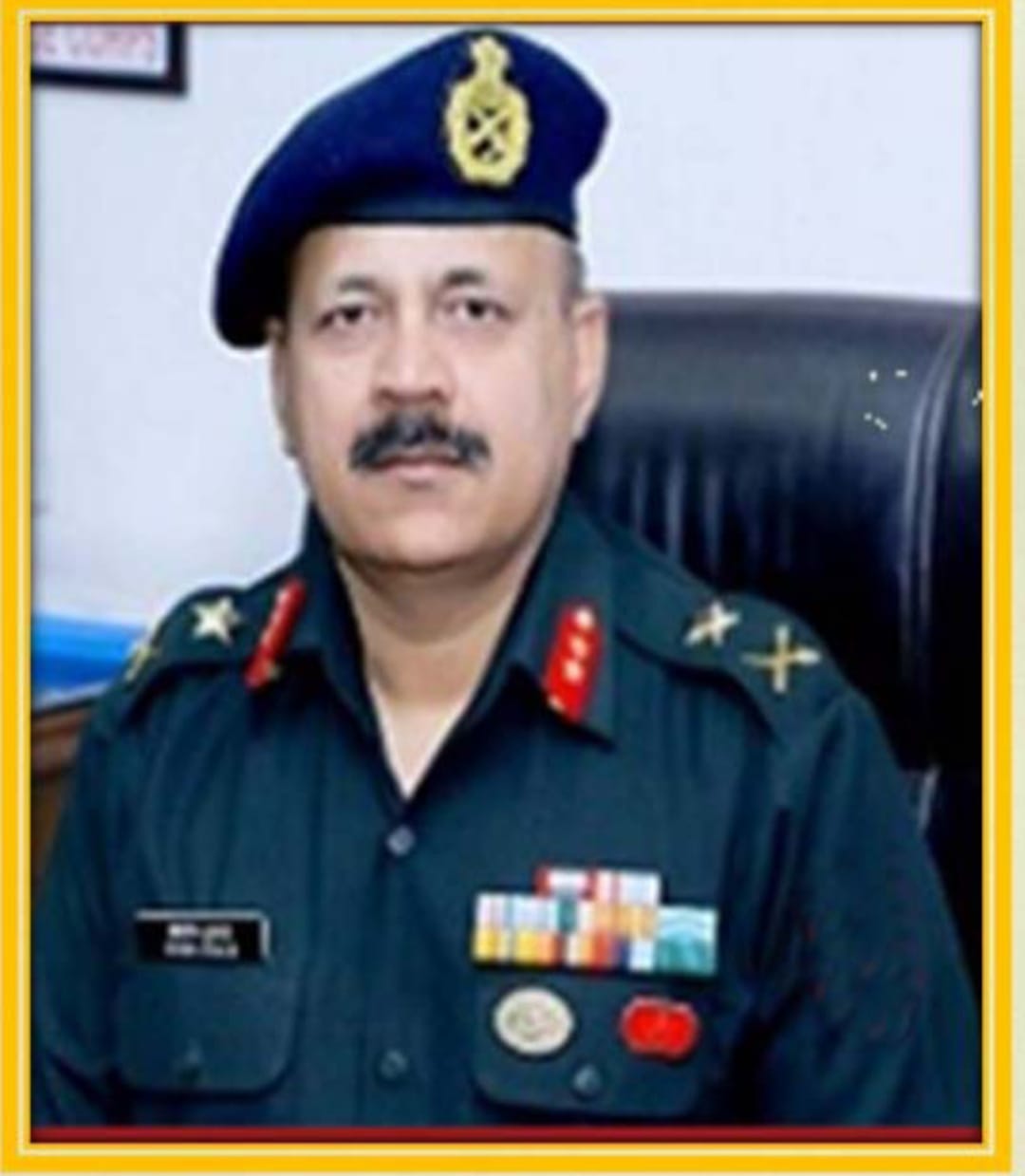
India’s Sri Lankan Moment has Arrived

When Russia invaded Ukraine in February 2022, it was highlighted by Russia that Ukraine joining NATO will result in Russian security getting compromised. It was due to this reason that Russia had put forward two demands to USA/NATO – one was not to include Ukraine as part of NATO and the second was related to terminate/reduce deployment of conventional as well as nuclear warheads from the East European countries.
None of these demands got a positive response from USA/NATO and on the contrary, the unlimited choice of a sovereign state was advocated stating the fact that Ukraine is a sovereign nation, and it has all the rights and privileges to decide what is best for it as a sovereign state.
Finally, Russia invaded and resulted in huge devastation of Ukraine, which is still continuing with no end in sight. The issue is not to judge whether Russia is right or not, the issue is those who are sitting outside, viz USA/NATO, have made Ukraine a scapegoat.
The devastation does not need to be in the form of war-fighting alone. Even the combined effect of a foreign country to ruin the economy of another country with support of leaders of the target country is no less than a war itself. This is exactly what is happening in Sri Lanka at the moment. In order to safeguard its strategic interests in the Indian Ocean Region (IOR) and for ensuring its energy security, China debt trapped Sri Lanka in a manner that not only is it on the verge of an economic collapse, but it is also heading towards a national collapse.
China succeeded in getting Colombo Port city and Hambantota projects on a 99 years lease. The strategic location of Hambantota, being on the Southern part of Sri Lanka, has helped China not only in safeguarding its national interests, but also in offsetting the Indian advantages substantially. It has debt trapped Sri Lanka with more than 10% foreign debt under its singular clutch. Not only this, now when the Sri Lankan economy has collapsed, it is trying to distance itself from the scene so as not to provide any help. India being the closest geo-neighbour, having people to people contact and cultural linkages, saw this as its responsibility to bail out Sri Lanka and has thus extended its shoulders.
Although India has provided substantial support despite its own domestic finances being under stress, the economic crisis has shifted to political crisis and is now gravitating towards a major civil unrest crisis. The Prime Minister has resigned and has gone into hiding at some naval base, while a number of killings have taken place including the death of a Member of Parliament. Majority of the population is on the road destroying property and national assets, which is not a good sign, considering their declining economy. Even the resignation of the PM and his cabinet has not been able to assuage the feelings of the protestors. ‘Shoot at sight’ orders have been given to the armed forces by the President under the constitutional power vested in him. These powers of the President are also being demanded for immediate change.
Though successive governments in Sri Lanka are accountable for the current day economic crisis, besides the culture of freebies, Covid impact and organic farming at national level, somehow the Rajapaksa clan has been considered the main culprit, at least, in public perception. Violators are therefore demanding the resignation of the President and are not satisfied with just the exit of the Mahinda Rajapaksa, who resigned as the PM.
While all this is happening, Central Bank of Sri Lanka has announced collapse of the economy, if a government doesn’t assume power in the next 2 or 3 days. The Sri Lankan President is already working towards this and has announced Ranil Wickremesinghe, a widely acceptable name as the next PM, despite his party having only a single seat in the current parliament. However, he has the experience of being PM of the country four times earlier.
While all this is being attempted, a major crisis is developing in Sri Lanka, resolution of which will not be possible by just economic aid, either by India, or by China (which in any case is not inclined) or by any other country. What is needed is establishment of law and order, people’s participation to prevent damage to life and property and address the root cause of the economic downfall in addition to short and mid term measures to address the current concerns.
What is the way out? Is Indian intervention in physical form inevitable? And if so, in what manner?
Indian Peace Keeping Force (IPKF) had intervened in Sri Lanka consequent to the Indo-Sri Lanka Accord between the two countries. It was probably not considered essential to take LTTE ‘on board’ for signing the accord. It was expected that the Indian concern and approach to help the Tamilian population will be appreciated and LTTE will disarm without any opposition, but none of these things happened. IPKF operations from 1987 to 1990 had a mixed response with a number of casualties being suffered by the Indian Army. It also resulted in reinforced perception that India has a soft corner for Tamil people because of their links with the Indian state of Tamil Nadu.
A segment of Sri Lankan thinkers and population was laughing it off seeing Indian Army attempting to write off LTTE and Tamil aspirations despite being the protector of genuine Tamil concerns.
The situation is entirely different now. A Bangladesh moment of 1971 appears to have arrived albeit in a different form. When India intervened militarily in East Pakistan, it resulted in its liberation and birth of Bangladesh. Despite a thundering win, it handed over the power to the Bangladeshi people, an unparalleled act in the world history. Sri Lankan situation is also similar except the fact that the problem is not purely military and therefore the rescue force has to be reconfigured differently.
Despite the attempt by CM of Tamil Nadu to help the Tamil population, Indian government has done well so far as to not to be seen aligned only to the Tamil population, but addressing the concerns of the entire Sri Lankan population keeping various identities aside. It is the right approach, as not only Tamils but Sinhalese as well have their roots in the Southern states of India, as a lot of people from these Indian states migrated to Sri Lanka in the past from all these communities.
There is a need to form ‘Friendship Divisions’ comprising of Armed Forces, enhanced logistic support component, oil and grain section, medical section, team of experts and economists and other stake holders who can go there, one each in North, Central and Southern part of Sri Lanka and help them revive trust in their own governance besides addressing the economic woes.
India can also use its influence to get IMF loan, reduce excessive component of subsidy (an action which it needs to take for itself as well) and other economic recovery actions to help Sri Lankan people to rewrite their own future. Excessive forces can be redistributed for better economic activities, as Sri Lanka really has no threat and if it is threatened, it can’t do much with its defence forces.
India must seize its Sri Lankan moment with the people’s consent, leaving aside rumours related to humanitarian assistance based intervention. Although, this has been denied by the Indian government. A direct dialogue with the Sri Lankan government and representatives of all parties must be established and ‘Friendship Divisions’ must be launched without any delay.
***********
Disclaimer
The opinions expressed in this article are the author’s own and do not reflect the views of Chanakya Forum. All information provided in this article including timeliness, completeness, accuracy, suitability or validity of information referenced therein, is the sole responsibility of the author. www.chanakyaforum.com does not assume any responsibility for the same.
Chanakya Forum is now on . Click here to join our channel (@ChanakyaForum) and stay updated with the latest headlines and articles.
Important
We work round the clock to bring you the finest articles and updates from around the world. There is a team that works tirelessly to ensure that you have a seamless reading experience. But all this costs money. Please support us so that we keep doing what we do best. Happy Reading
Support Us





















POST COMMENTS (0)